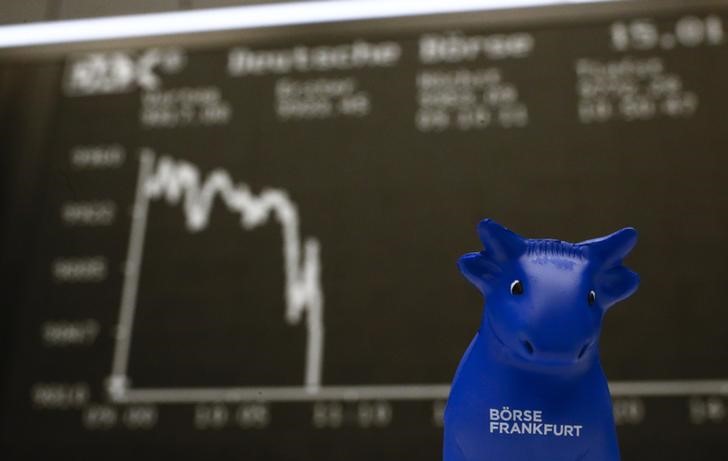This post was originally published on this site
https://i-invdn-com.investing.com/news/LYNXMPEE3O1QH_M.jpg
Investing.com – European stock markets weakened Friday on concerns of slowing economic growth as the banking crisis drifts on.
At 05:00 ET (09:00 GMT), the DAX index in Germany traded 1.3% lower, the CAC 40 in France dropped 1.3% and the FTSE 100 in the U.K. fell 1.4%.
Economic data released Friday confirmed that the important German and French manufacturing sectors remained firmly in contraction territory in March, even though services showed signs of improvement.
U.K. retail sales unexpectedly rebounded by 1.2% in February from the month before, returning sales volumes to their pre-pandemic level.
That said, it’s difficult to see this improvement continuing as Europe weighs up the fallout from the forced UBS-Credit Suisse tie-up, with the banking crisis prompting fears that lending will slow, weighing on economic activity.
Strains are also showing in the U.S. banking sector as borrowing at the Federal Reserve’s discount window was a hefty $110.2 billion as of Wednesday.
Additionally, lending from the Fed’s new Bank Term Funding Program ballooned to $53.7B, while loans to foreign central banks surged to $60B.
At the same time, central banks are continuing their clamp down on inflation, with the Federal Reserve, the Bank of England and the Swiss National Bank hiking rates this week, following last week’s European Central Bank increase.
Citigroup cut its target for the Stoxx 600 index, expecting the benchmark to end the year at 445 points — around its current level — down from a 475-point forecast issued just last month.
“Volatility in the global banking sector should shift investors’ attention to recession risks and deteriorating fundamentals,” said Citi, in a note, expecting company earnings to contract 5% to 10% this year.
In corporate news, Deutsche Bank (ETR:DBKGn) stock fell over 8% after a sharp jump in the cost of insuring against the risk of default, while UBS (SIX:UBSG) stock fell over 6% in the aftermath of its acquisition of troubled rival Credit Suisse.
Tui (ETR:TUI1n) stock fell over 6% after the German-based tour operator launched a steeply discounted rights issue to help it repay pandemic-era government aid.
J D Wetherspoon (LON:JDW) stock rose over 7% after the U.K. pub group swung to a profit and posted higher-than-anticipated sales in its first half.
Oil prices fell Friday, ending a largely positive week on the retreat after U.S. officials expressed caution over the length of time it would take to refill the country’s Strategic Petroleum Reserve, which has fallen to a near 50-year low.
U.S. Energy Secretary Jennifer Granholm said on Thursday that it will be “difficult” to refill government oil reserves this year, undermining previous indications that the Biden administration will begin restocking if prices traded around $67 to $72 a barrel.
By 05:00 ET, U.S. crude futures traded 1.2% lower at $69.10 a barrel, while the Brent contract climbed 1.1% to $75.05.
Both crude benchmarks are still on track for a weekly gain of about 3%-4%, recovering from their biggest weekly declines in months last week as the banking sector exacerbated worries about a possible recession.
Additionally, gold futures fell 0.4% to $1,988.95/oz, while EUR/USD traded 0.4% lower to 1.0784.

